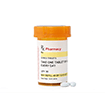Use these resources to help you take an active role in your healthcare.
Click on each section to expand.
You’re the most important part. Take an active role in your healthcare.
Use these resources to help you take an active role in your healthcare.
Click on each section to expand.
 Here are a few tips to keep in mind before, during, and after you visit your healthcare team, including doctors, nurses, dentists, psychologists, pharmacists, physiotherapists, dieticians, and more. You can also download this information to your device or print.
Here are a few tips to keep in mind before, during, and after you visit your healthcare team, including doctors, nurses, dentists, psychologists, pharmacists, physiotherapists, dieticians, and more. You can also download this information to your device or print.
Before Your Visit:
When it’s time to speak with your healthcare team, do you forget what you wanted to ask? Most of us do. Writing down a list of questions, symptoms, and concerns ahead of time can help. When you’re done, mark the most important things. Use the Symptom Tracker and Questions to Ask Your Healthcare Team as guides.
Asking someone you trust to go with you to your appointment can be useful. Your companion can help you with questions, write down instructions, and remember explanations. You may also identify someone as your Designated Support Person / Essential Care Partner—they will play a more active role on your healthcare team.
Note: During the COVID-19 pandemic a companion may not always be permitted, you can ask before your appointment about the current restrictions.
If you do go alone, you may want to bring a notepad and pen to take notes, or record the session. Most smartphones have a built-in audio recorder, or you can download one as an app, such as Alberta Health Services’ My Care Conversations Recording App. Your healthcare team will likely agree to be recorded, but be sure to ask first.
Take along a current list of the prescription and non-prescription medications you use, including things such as vitamins and herbal remedies. Create a medication list to get started. Your healthcare team needs to know everything you’re taking. Having a list makes it easy for you to remember and for your team to review.
During Your Visit:
Use your list of questions, symptoms, and concerns to tell your healthcare team what you want to discuss and what you want to get from the appointment. Explain what concerns you most. If your list is long, you may need to plan together how best to handle things – you might need another appointment to cover everything or to follow up.
Tip: If you have any concerns, call ahead to inform the clinic you may need some extra time or ask if you need additional appointments.
Make sure you understand the advantages and disadvantages of treatment options. It’s important to understand the full impact of the suggested treatment and any side effects that you might experience. Take the time you need to understand your options. Use Questions to Ask about Your Treatment Options as a guide.
Ask questions like: “Are there other resources available where I can learn more?” By asking your healthcare team for more information, you get accurate and reliable information to learn more about your concerns at your own pace. If they don’t have resources handy, they should be able to tell you where to find them.
Studies show that even when we feel we understand our healthcare teams’ instructions during our visit, there’s a good chance it may not all make sense by the time we get home.
Write down instructions and information immediately — or record it (with your team’s permission) so you can go over it later. You may find Alberta Health Services’ My Care Conversations Recording App useful for recording conversations.
This ensures the whole team, you included, understands what needs to be done. A simple sentence like: “Let me see if I understand you correctly….” can help you process the information with your healthcare team and help your team clarify any information.
Examples include:
Find out how your healthcare team handles test results and how long they typically take. Also ask them about special appointments. Some doctors only call or schedule an appointment if further follow-up is needed. It’s important to know what to expect so you can follow up.
After Your Visit:
If you need tests, make appointments at the lab or other offices as soon as possible. Confirm how long the results may take to get to your healthcare team.
It’s normal and common to feel confused or misunderstood. Don’t hesitate to call your healthcare team whenever:
If you cannot reach your healthcare provider and need health advice or information, call Health Link 24/7 by dialing 8-1-1.
![]()
Not feeling well? Notice a change that seems unusual? Write down the answers to the questions in the Symptom Tracker before you see your healthcare team and take them to your next appointment.
This way you won’t have to worry about remembering and your healthcare team will get the information they need to help you.
Describe what has changed recently. For example, do you have new or worse pain/discomfort? Are you unable to do things you could do two weeks ago? Have there been changes in your thinking, memory, or mood? Is your sleep different? Appetite? Bathroom habits?
Be open. Be honest. Get well.
You might feel like you don’t want to bother your healthcare team with the little concern you’ve noticed after your treatment or after starting your new medication, but no detail is too small to share. If it matters to you, it will matter to your healthcare team. Although you might feel embarrassed about some changes, it’s up to you to say something. For instance, mention changes to your bowel movements (e.g., constipation, bloody stools); changes in getting to the bathroom on time; and so on. Medical professionals deal with the human body every day and they live in human bodies of their own — so there’s no need to be shy, hesitant, or embarrassed.

Be an active participant:
If you don’t understand what your healthcare team is telling you, let them know right away. Be open and honest. You could say:
Medical terms can be technical and hard to understand. Ask for explanations and examples to ensure you fully understand them.
Questions to ask:

If you need to choose between treatment options, here are some important questions to get answered before you decide:
Some important questions to ask before undergoing any treatment:
Used properly, medications can ease your health problem, improve your general condition, and even save your life. So it’s important to monitor, use them correctly, and ensure they’re up-to-date.
Below is a simple checklist to help you ensure that you’re getting the full benefit from your prescribed medications. You can also download this information to your device.
*Side effects are changes that medications might cause besides what they’re supposed to do. Before you take any medication, your healthcare team should tell you about possible side effects and how long they might last. You could ask to have the medication changed if the side effects bother you. There might be another medication that suits you better. Discuss with your healthcare team which side effects you should report or be mindful of.
**Adverse reactions are more serious than side effects and don’t happen very often.
Examples include:
If you think you’re having an adverse drug reaction, contact your healthcare team right away. In an emergency, dial 9-1-1.
Need help with your medication?
Start by calling your pharmacy. Call whenever:
Pharmacy staff are on your team:
Ask them any questions you have about your prescription or non-prescription medications. They’re experts. If you use one pharmacy for all your prescriptions, your pharmacist can look at your complete personal drug history to keep track of the medications you take.
Here’s what your pharmacy team can do for you:
Make your life easier:
Packaging can help:

A blister pack is a method of packing medications where each dose is placed in a small plastic bubble and backed by a sheet of foil. Medications are organized by day, usually for up to a week at a time. When it’s time to take the medication, you simply push the pill through the blister packing. That way, you can see which doses you’ve taken.

A dosette is a container where you can store and organize your medications into compartments for different times of the day (e.g., morning, noon, afternoon, or bedtime) usually for up to a week at a time. That way, you can see whether you’ve taken your last dose of medication. You can fill it yourself or have it filled by a pharmacist — which is a good idea if you take many medications at different times of the day. Dosettes may also come with alarms that beep when it’s time for your next dose.

Most medications are put in childproof containers. Childproof lids can be very difficult to open. If you’re having trouble, ask your pharmacist for non-childproof lids. Remember to always keep medications away from children.

You may not want to mention things such as smoking, alcohol consumption, cannabis use, or if you have mixed prescription and non-prescription medications. Maybe you felt embarrassed to tell your provider these details or maybe you forgot to mention them. Whatever the reason, the cost of leaving out information about your health could be high. Missing information could be vital to getting better. Your healthcare team needs to know all they can about what may be affecting you. You and you alone are the best source for this information.
 Not all prescriptions are for medicine. You may be asked by your healthcare team to change your lifestyle and to start to eat differently, lose weight, get more exercise, or stop smoking.
Not all prescriptions are for medicine. You may be asked by your healthcare team to change your lifestyle and to start to eat differently, lose weight, get more exercise, or stop smoking.
Questions to Ask About Lifestyle Changes
Here are some questions to ask your healthcare team about lifestyle changes. You can also download and print these questions here.
Tips for Making Lifestyle Changes
Below are a few tips for making lifestyle changes to support your health. Please note these are general tips. Before making any lifestyle changes, talk to your healthcare team.
Other Resources
Take an Active Role
Finding Care
Care Partners or Support Persons
Patient/Family Concerns
The COVID-19 pandemic may have impacted the way you interact with your healthcare team. For example, some visits may have been virtual or you may not have been able to bring along a family member. Please check with your healthcare team on specific guidelines and restrictions as they are continually changing.
Don’t delay your healthcare.
Regardless of the current pandemic situation, your health remains a priority and your healthcare team will have solutions to ensure you can still receive safe, quality care.
For questions or media inquiries, please contact us.
Want to share your perspective with the HQCA on healthcare issues and topics? Sign up here for future engagement opportunities.
Are you a healthcare provider who is looking to support your patients in taking an active role in their healthcare? Visit Working With Your Patients